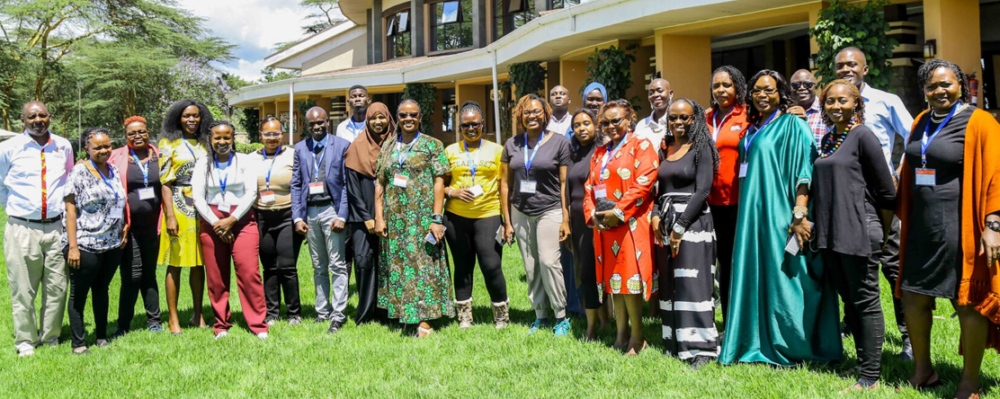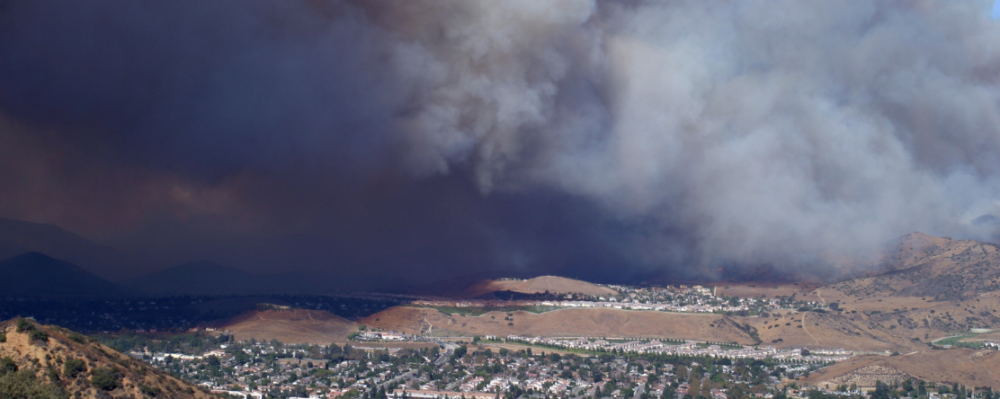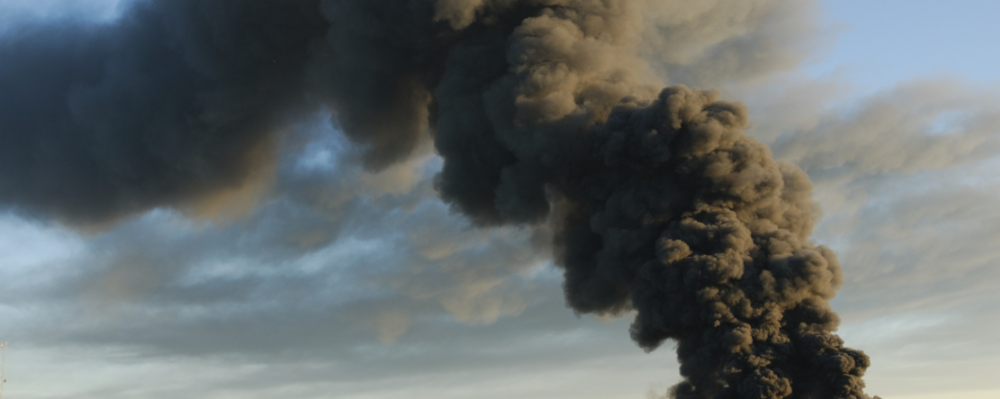
Update
PHI at the 2018 Global Climate and Health Forum
-
Focus Areas
Chronic Disease Prevention, Environmental Health, Global Health, Healthy Communities -
Issues
Climate Change -
Expertise
Coalition & Network Building -
Programs
Center for Climate Change and Health

“Climate change is the greatest health threat, and opportunity, of the 21st century and the health sector must lead the way to call on local, national and global policymakers to act now to significantly reduce climate pollution and build climate resilience,” said Dr. Maria Neira, the director of the Department of Public Health, Environment, and Social Determinants of Health of the World Health Organization, and the Public Health Institute is ready to meet the challenge head-on.
On Wednesday, September 12, health leaders from around the world gathered at the first-ever Global Climate and Health Forum in San Francisco to discuss the impact of climate change on health and their responsibility to act. PHI participated as a host organization, as the event represented our commitment to research, leadership, and partnerships that work to build healthy communities where individuals can reach their full potential. PHI also serves as the secretariat and convener for the U.S. Climate and Health Alliance, which was one of the main event organizers. The forum kicked off the 2018 Global Climate Action Summit, a historic event that brought major world leaders together to showcase their climate action and inspire deeper commitments from multiple sectors in support of the Paris Agreement.
-
Read PHI’s Twitter live stream of the Global Climate and Health Forum events, or search #GCAS18.
-
Read the Global Climate and Health Call to Action and add your organizational endorsement.
-
Read PHI’s full statement on SB 100 and California’s commitment to clean energy.
 |
When it comes to climate change, the health sector has a vital role to play. It is an important voice in advocating for climate action, and health systems and professionals witness the human impacts of climate change on the front lines. “Climate solutions can offer significant opportunities to address major health challenges – from global health inequities to non-communicable disease epidemics,” said event organizers. The panels and speeches throughout the day focused on topics including decarbonizing the global healthcare supply chain, immigration, transportation, and communicating about climate change. Here are some highlights from the event:
“We are now at the tipping point,” said Ricardo Lagos, the former President of Chile. “The time for diagnosis is over – now is the time for action on climate change.” |
In a morning break out session, Dr. Georges Benjamin, the Executive Director of the American Public Health Association lead a lively discussion on advocacy for Climate and Health Policy. Dr. Renzo Guinto, a consultant on climate and health with Health Care Without Harm-Asia, said that despite vulnerabilities, local health leaders in the Philippines are steering people towards clean energy. “We can’t be like doctors who treat symptoms but not root causes,” said Guinto. Others on the panel were quick to point out that not all populations experience climate disasters equally, and therefore our response must be equitable. “People of color are the first hit by climate change,” said Gladys Limon, the Executive Director of California Environmental Justice Alliance. “We need to put the disadvantaged first in our disaster response and make sure they receive protections and benefits.” Rachelle Wenger, the Director of Public Policy and Advocacy at Dignity Health and Fiona Armstrong, the Founder and Executive Director of the Climate and Health Alliance also shared helpful perspectives from their communities. Read PHI’s Twitter live stream of the panel.
 |
Moderated by Gary Cohen of Health Care Without Harm, the panel on Subnational and National Action for a Healthy Climate brought together leaders from around the world to discuss how their governments are prioritizing climate action in order to promote good health for their citizens. While the impacts of climate change are daunting, “it is an important time to be working on climate change in California,” said David Bunn, the Director of the California Department of Conservation. “If it works here, it can set the pace for the rest of the country.” Leeanne Enoch, the Minister for Environment and the Great Barrier Reef for the Queensland Government in Australia, Alice Akinyi Kaudia, the Co-Chair of the Climate and Clean Air Coalition in Kenya, and Shirley Rodrigues, the Deputy Mayor of Environment and Energy in London, UK, also spoke about specific ways their federal governments using climate science to drive policy decisions. Read PHI’s Twitter live stream of the panel.
 |
Global Climate and Health Call to Action
After a full day of speakers and break-out sessions, Dr. Linda Rudolph, the Director of PHI’s Center for Climate Change and Health, and Josh Karliner, the International Director of Programs and Strategy for Health Care Without Harm, presented the Global Climate and Health Call to Action. The Call to Action is endorsed by over 50 organizations from across the globe, including the World Federation of Public Health Associations, the American Academy of Pediatrics, the American Public Health Association, the International Federation of Medical Students Associations, Dignity Health, Kaiser Permanente and the American Lung Association. It outlines 10 priority actions that will significantly protect lives and improve people’s health in the era of climate change. Read the Global Climate and Health Call to Action and add your organizational endorsement.
Food Justice in the 21st Century
At Climate Action by the People, an affiliate event, Michael Dimock, the president of PHI’s Roots of Change, spoke on a panel on Food Justice in the 21st Century alongside Ciara Segura, the Program & Policy Director Manager for Mandela Marketplace in Oakland, and Leigh Gaymon-Jones, the Director of Education for CUESA in San Francisco. The event was co-sponsored and organized by the Hip Hop Caucus and moderated by Mustafa Santiago Ali. “Without food justice, we cannot overcome health inequity,” said Dimock. “Since food systems are the base of any civilization, if we don’t create health-enhancing practices to share the food, we have little hope for the future. But I see progress. Everyone on the panel and in the audience had the vision, drive, knowledge, and skills that give me hope.”
 |
Climate Action in California through SB 100
PHI is committed to addressing the social determinants of health. The environments in which people live, work, and play are inextricably tied to the climate through clean air, clean water, access to healthy food, and more. “Climate change is one of the biggest public health concerns of our times,” said PHI President and CEO Mary A. Pittman. “And its impacts are not contained by local, state or national boundaries. The actions that contribute to climate change are felt by every world citizen.” PHI applauds the state, Governor Brown, and SB 100 sponsor Senator Kevin de León for their vision and international leadership in passing the bill that sets a 100% clean electricity goal for California by 2045. Read PHI’s full statement on SB 100.
Originally published by Public Health Institute
More Updates
Work With Us
You change the world. We do the rest. Explore fiscal sponsorship at PHI.
Support Us
Together, we can accelerate our response to public health’s most critical issues.
Find Employment
Begin your career at the Public Health Institute.



